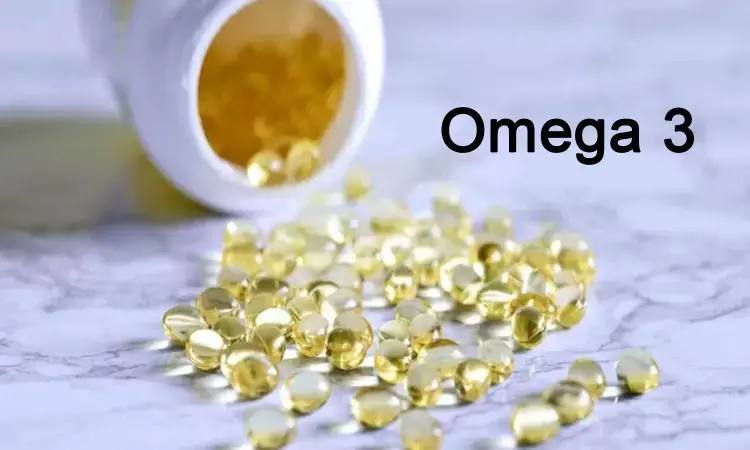- Home
- Medical news & Guidelines
- Anesthesiology
- Cardiology and CTVS
- Critical Care
- Dentistry
- Dermatology
- Diabetes and Endocrinology
- ENT
- Gastroenterology
- Medicine
- Nephrology
- Neurology
- Obstretics-Gynaecology
- Oncology
- Ophthalmology
- Orthopaedics
- Pediatrics-Neonatology
- Psychiatry
- Pulmonology
- Radiology
- Surgery
- Urology
- Laboratory Medicine
- Diet
- Nursing
- Paramedical
- Physiotherapy
- Health news
- Fact Check
- Bone Health Fact Check
- Brain Health Fact Check
- Cancer Related Fact Check
- Child Care Fact Check
- Dental and oral health fact check
- Diabetes and metabolic health fact check
- Diet and Nutrition Fact Check
- Eye and ENT Care Fact Check
- Fitness fact check
- Gut health fact check
- Heart health fact check
- Kidney health fact check
- Medical education fact check
- Men's health fact check
- Respiratory fact check
- Skin and hair care fact check
- Vaccine and Immunization fact check
- Women's health fact check
- AYUSH
- State News
- Andaman and Nicobar Islands
- Andhra Pradesh
- Arunachal Pradesh
- Assam
- Bihar
- Chandigarh
- Chattisgarh
- Dadra and Nagar Haveli
- Daman and Diu
- Delhi
- Goa
- Gujarat
- Haryana
- Himachal Pradesh
- Jammu & Kashmir
- Jharkhand
- Karnataka
- Kerala
- Ladakh
- Lakshadweep
- Madhya Pradesh
- Maharashtra
- Manipur
- Meghalaya
- Mizoram
- Nagaland
- Odisha
- Puducherry
- Punjab
- Rajasthan
- Sikkim
- Tamil Nadu
- Telangana
- Tripura
- Uttar Pradesh
- Uttrakhand
- West Bengal
- Medical Education
- Industry
Icosapent ethyl fails to benefit non-hospitalized adults with COVID-19, finds clinical trial

DALLAS:The purified omega-3 fatty acid, icosapent ethyl, did not result in a statistically significant reduction in hospitalization or death from COVID-19, finds a new late-breaking clinical trial.
A high dose of a purified omega-3 fatty acid, icosapent ethyl was well tolerated; however, it did not substantially reduce incidents of hospitalizations and/or deaths among people with COVID-19.
The clinical trial was presented today at the American Heart Association's Scientific Sessions 2021.
Researchers sought to determine whether a high dose of pure eicosapentaenoic acid (EPA) ethyl ester, called icosapent ethyl (IPE), would reduce the rate of hospitalizations and/or death among people with COVID-19.
The Prevention and Treatment of COVID-19 With EPA in Subjects at Risk - Intervention Trial (PREPARE-IT 2) included approximately 2,000 men and women, ages 40 and older, who tested positive for COVID-19 and experienced symptoms of the infection (fever, cough, sore throat, shortness of breath or muscle aches) for 7 days or less prior to study enrollment but did not clearly require hospitalization. Participants were randomized to receive either IPE or placebo pills. Those in the treatment arm received 8 grams of IPE as 4 capsules every 12 hours with food for 3 days, followed by 4 grams of IPE as 2 capsules every 12 hours with food for days 4-28. Neither the patients nor their health care professional knew if they received IPE or the placebo.
A subgroup of patients was asked to self-report the severity of their symptoms using a validated symptom diary, the FLU-PRO assessment, at the start of the study and at 28 days.
The researchers found that IPE treatment was safe and well tolerated, though there was a slightly higher rate of participants who stopped taking the pills in the IPE group. There was a positive, though not statistically significant, trend for a benefit with the treatment.
Prescription IPE has been approved by the FDA as an adjunctive therapy to reduce risk of cardiovascular events in some patients. PREPARE-IT 2 used twice the FDA-approved dose of IPE as a "loading dose" the first three days of treatment to examine the safety and tolerability of the higher dose of IPE. A loading dose is a higher amount of medicine given initially, before switching to a lower maintenance dose for the duration of treatment.
"Based on observable outcomes, loading doses of IPE were safe and well tolerated," said study author Rafael Díaz, M.D., director of Estudios Clínicos Latinoamérica in Rosario, Argentina. "It's unclear if a larger trial might support or refute the positive trends noted here with high-dose IPE treatment."
Dr Kamal Kant Kohli-MBBS, DTCD- a chest specialist with more than 30 years of practice and a flair for writing clinical articles, Dr Kamal Kant Kohli joined Medical Dialogues as a Chief Editor of Medical News. Besides writing articles, as an editor, he proofreads and verifies all the medical content published on Medical Dialogues including those coming from journals, studies,medical conferences,guidelines etc. Email: drkohli@medicaldialogues.in. Contact no. 011-43720751


